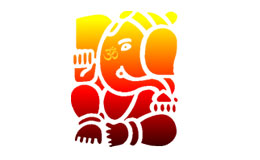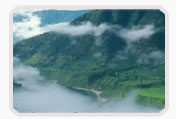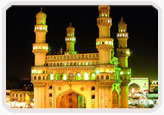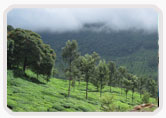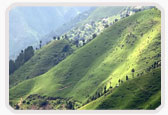Siberia, a vast land in the middle of Russia, remains
mysterious and inaccessible even for locals. Three
fascinating regions – Krasnoyarsk, Tuva and Khakassia
- have three strikingly different landscapes and three
unique cultures. Dense taiga forests and endless
steppes, fields and majestic bare mountains,
Christianity and shamanism - all of these elements
have been co-existing for centuries in Siberia.
|
|
|
|
|
|
|
|
Day 01:
Krasnoyarsk. Arrive in Krasnoyarsk. Start your first day in Siberia
with a tour of Krasnoyarsk city, a large Siberian city on the bank of
the Yenissei River. Visit Paraskeva Pyatnitsa chapel, the symbol of
Krasnoyarsk and discover the history of the old quarter. Also visit
Krasnoyarsk Region Museum, one of the richest museums
of Siberia, and learn about the exploration of Siberia, different
peoples inhabiting this land and their religions. The museum visit
will give you insight to the history and ethnic traditions that you will
encounter further in this tour. Then transfer to the station for an
overnight train to Abakan.
|
|
|
Day 02:
Khakassia. Arrive in Abakan, the capital of Khakassia,
and take a tour of the town including its museum.
After lunch, set out to the first archaeological site –
the Valley of Kings (70 km), renowned for more than 50
big burial mounds of ancient kings from the Tagarsk
tribe. Explore these enigmatic sites before returning
to Abakan for the night.
|
|
|
Day 03 & Day 04:
Khakassia. We spend these days discovering the numerous
archaeological and spiritual sites of the surrounding area,
visiting the mountain of Aar-Tag with its medieval paintings
and learning about local legends. We visit ancient standing
stones and petroglyphs accompanied by a local expert
in archaeology who will be able to explain the significance
of this fascinating area, which few in the west have heard about.
|
|
|
Day 05:
Ancient stelae and paintings. Spend the day visiting
a number of traditional spiritual sites, starting
with Khurtuyakh-tas stela - the most famous monument
in Khakassia and a symbol of maternity. Still
venerated today, Khakassian women bring gifts
here if they wish to have a baby.
|
|
|
Day 06:
Valley of Ancestors. Walk to the valley of Chity-Khys (Seven Sisters),
which is also called the Valley of Ancestors, dotted with numerous
burial mounds. During this excursion you will visit sites dating back
as far as the 12th century BC and see rock paintings made by
different techniques according to Buddhist or shamanism beliefs, as
well as visiting a mountain temple. Before returning to Abakan for
the night, stop at Akh-Tas (White Stone), a monument that
according to the locals has a healing power.
|
|
|
Day 07:
Tuva. Transfer to Kyzyl, driving along the Sayan Mountains
– you will have plenty of opportunities to observe beautiful
forest and mountain views. Tuva confronts travellers with
drastically different, spectacular landscapes of austere
mountains and the wide open spaces of the steppe. The first
place to visit in Tuva is the famous burial mound 'Arjaan II'
. The digging was conducted by the specialists of Hermitage
museum in St Petersburg, and 20kg of splendid golden
jewellery found here under layers of earth became a
sensation in the archaeological world.
|
|
|
Day 08:
Kyzyl. Spend today exploring Kyzyl, the capital of Tuva. Visit the
'Geographical Centre of Asia Monument', the Buddhist temple,
where you might have a chance to witness a sermon of the lama,
and the shaman's clinic. After lunch take a guided tour of the
National museum of Tuva with its exhibition of gold and silver
objects found in Scythian burial mounds. This evening you have the
option of witnessing a performance of traditional Tuvan throat
singing (own expense).
|
|
|
Day 09:
Tuvan nomadic culture. Today we head out into the Tuvan
countryside to meet nomadic families, living in the same
manner as they have for centuries. We will hopefully have
opportunity to get acquainted with the traditional lifestyle
and Tuvan culture. If there are no nomads nearby, an
optional alternative programme will be followed. It may
also be possible to arrange a Tuvan shaman ceremony
(own expense).
|
|
|
Day 10:
Springs and lakes of Tuva. After breakfast, head on to the healing
cold spring Argolik; its waters contain no mineral salts, but the locals
(both villagers and doctors) confirm its healing powers. Continue to
the lake Douce-khol (Svatikovo), located in an area of miniature
deserts. The lake is oversaturated with salts and attributed with
more medicinal properties than the Dead Sea. The waters of the
lake boast an incredible density
|
|
|
Day 11:
Tanzybey. Drive to Tanzybey, a village located half-way to
Abakan. A local Russian family will host you. Today you will
see how the locals live, and you can help your hosts around
the household - weed the vegetables in the kitchen-garden,
cut the firewood, or scythe grass for the cattle; walk to the
forest to get some birch-tree juice or branches for making
whisks for the sauna or pick mushrooms and berries. In the
evening, participate in preparing a traditional dinner of
local cuisine and learn how to bake the delicious local pies
or make a salad out of fern. Complete the day with an
excellent banya (traditional Russian steam sauna).
|
|
|
Day 12:
Shushenkoe. Continue exploring the Krasnoyarsk region. Visit
the historical town of Shushenskoe, once a notorious place
of political exiles and famous among Russians as the place of
Lenin's exile. The inhabitants of the town are also proud of their
folk traditions and hospitality. Visit the State Ethnographical
open-air museum to find out about the history of the settlement.
|
|
|
Day 13:
Krasnoyarsk. Arrive in the morning in Krasnoyarsk. Transfer
from the railway station to the airport in time for your flight
to Moscow and connecting flight home.
|
|
|













